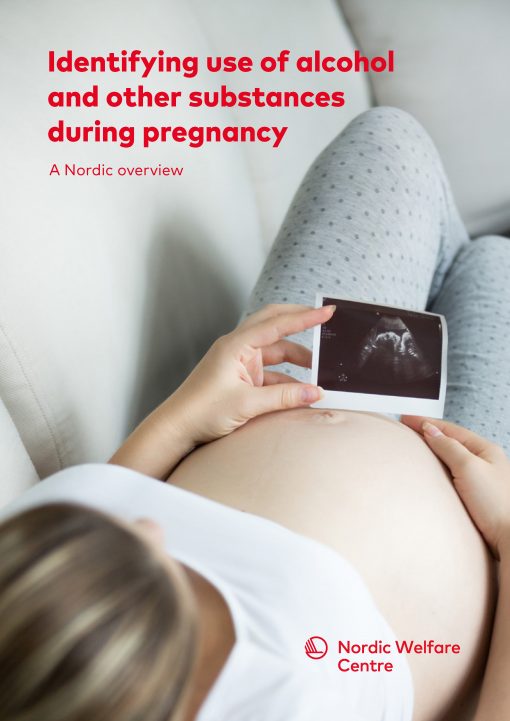The Nordic Welfare Center recently published its report on how the use of intoxicants among pregnant women affects fetal development. The report gives an overview of the situation in the Nordic countries and how the Nordic countries can learn from each other's approaches.
This spring, the Nordic Welfare Center published a report on alcohol use and other intoxicants among pregnant women in the Nordic region. The report compares the situation between the Nordic countries and describes both the countries' care systems and the consequences of substance use and abuse.
Niina-Maria Nissinen has worked on the report in collaboration with Nadja Frederiksen, project manager at the Nordic Welfare Center. Nissinen is a doctoral student student within health sciences and does research at the ADEF-Helsinki project at the Folhälsan Research Center. The project investigates the use of intoxicants and its consequences for the child's health and development.
– The aim of the report is to present the Nordic countries' models so that we can learn from each other's systems and experiences when it comes to support functions for the mother and the child, Nissinen says.
 Niina-Maria Nissinen, doctoral student at the University of Tampere and the Folkhälsan Research Center.
Niina-Maria Nissinen, doctoral student at the University of Tampere and the Folkhälsan Research Center.
About 6 percent of all pregnant women in Finland use some form of intoxicant, and about 1-3 percent of them abuse alcohol. In Finland, up to 3500 children who have been exposed to intoxicants during the fetal stage are born each year. While the consequences of, for example, alcohol consumption rarely pose any greater risk to the mother, it always entails a significant risk to the child. For the child, the consequences can be lifelong.
The collective term FASD, or Fetal Alcohol Spectrum Disorders, is used for birth defects that have arisen as a result of the mother's alcohol use during pregnancy. In severe cases, the risk of being born prematurely can increase. Also, fetal development is hampered, which can lead to heart failure or impaired vision and hearing. FASD sometimes affects the child's appearance as well. It is also possible that the child will suffer from cognitive challenges that manifest themselves as learning difficulties and behavioral problems.
– All children exposed to alcohol during the fetal stage do not receive a diagnosis. Getting a diagnosis makes it easier to access support and rehabilitation for learning and everyday life. Without a diagnosis, it is possible that the child will have difficulties without getting proper support, since society and the environment puts demands on the child that the child simply cannot handle.
 The Nordic Welfare Centres overview report.
The Nordic Welfare Centres overview report.
All Nordic health authorities recommend screening of alcoholic use of expectant mothers. But even though the risks of alcohol are well known, it is not always easy to identify the mothers who would need support.
– There are many reasons for this. Not all mothers are comfortable addressing their situation of fear of being stigmatized, while others may have become pregnant without knowing - and consequently damaging the fetus by accident. The counseling professionals ought to be able to raise the issue for discussion in a comfortable, natural and non-stigmatizing way so that counseling does not cause unnecessary stress for the mother.
The FASD phenomenology is very versatile. The clinical aspect of screening, diagnosis, and care are only part of the puzzle. The attitudes of society, the stigma that alcohol consumption brings, and the mother's life situation must also be considered as a whole.
– It is easy to think that this applies only to women or addicts, but it applies to all of us. We need more research and a broader perspective of the situation to be able to develop effective and accessible services for the mother and the child, Nissinen concludes.
You can read the full report here: https://nordicwelfare.org/publications/fasd/
Simon Granroth, Science Communicator
